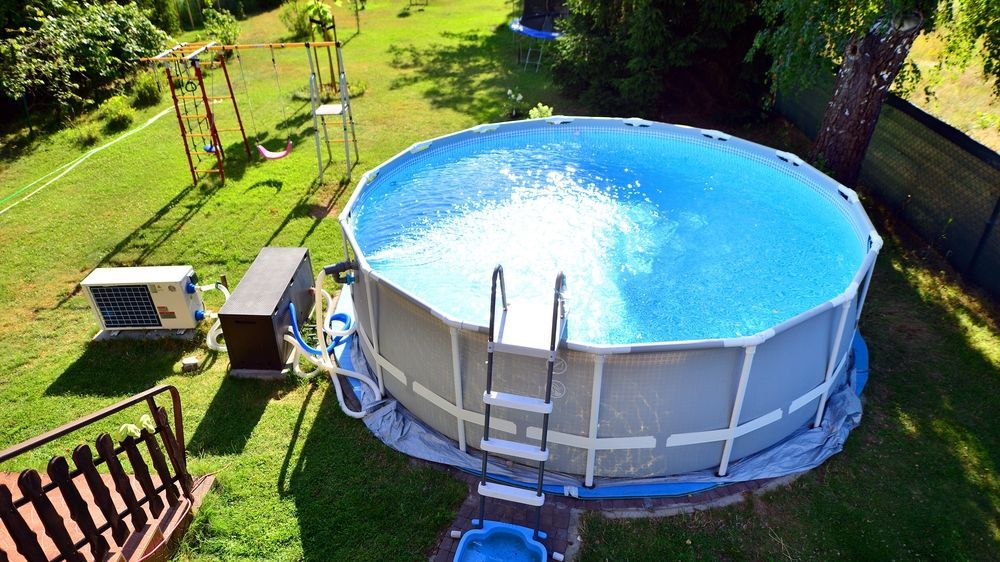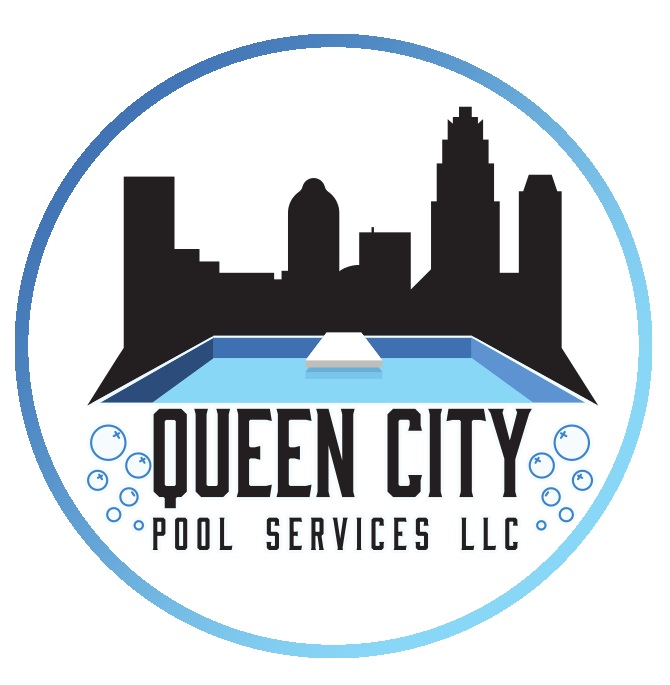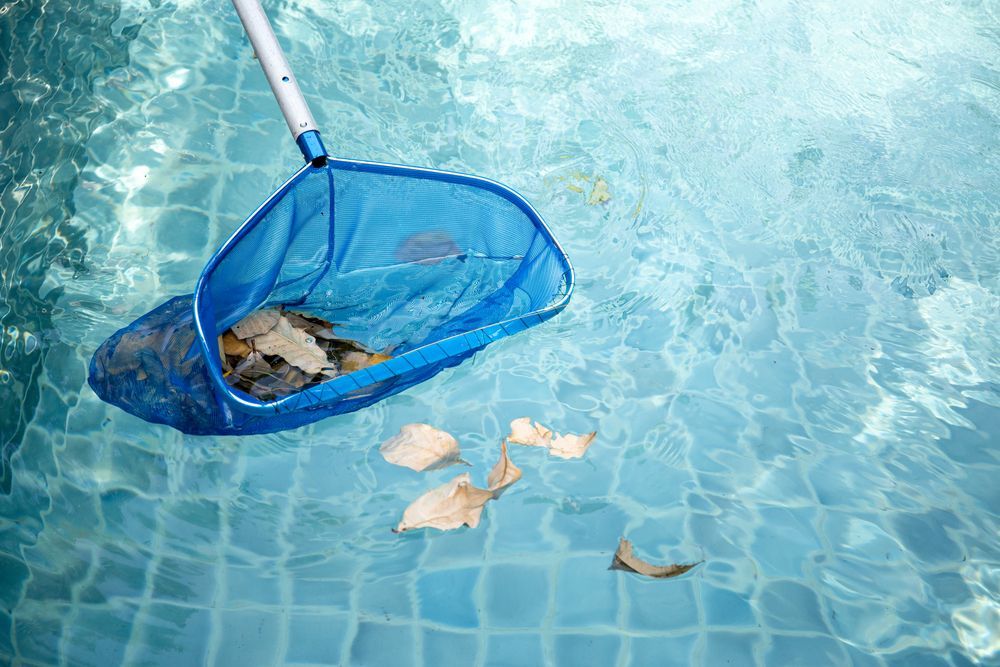GET A FREE QUOTE TODAY - CALL US @ 803-558-7469 or 803-558-7125
How To Clean An Above Ground Pool

Maintaining an above ground pool is crucial for ensuring a safe and enjoyable swimming experience. Knowing how to clean above ground pool effectively can extend its lifespan, save money on repairs, and keep the water crystal clear. This guide will walk you through a comprehensive cleaning process, from basic maintenance to tackling common issues, all aimed at keeping your pool in top condition.
Understand Your Pool's Needs
Before diving into the cleaning process, it's important to understand the specifics of your pool. Above ground pools come in various sizes, shapes, and materials, each requiring slightly different care. Familiarize yourself with your pool's filter system and recommended chemical levels. This foundational knowledge will make the cleaning process more efficient and prevent damage to your pool.
Regular Maintenance Schedule
Consistency is key in pool maintenance. Setting a regular cleaning schedule helps prevent algae growth and keeps the water balanced. Include skimming, vacuuming, and checking chemical levels in your routine. Weekly maintenance can significantly reduce the need for more intensive cleaning and help maintain a healthy swimming environment.
Skimming and Vacuuming
Skimming the pool's surface daily removes leaves, insects, and other debris. Use a long-handled net for this purpose. Regular skimming improves water circulation and the efficiency of pool chemicals.
Vacuuming the pool floor is essential for removing dirt, algae, and debris that the skimmer misses. Manual vacuums work well for above ground pools, allowing for targeted cleaning of problem areas. Ensure you move slowly to avoid stirring up sediment, which can cloud the water.
Filter Maintenance
The filter is the heart of your pool's circulation system. It removes impurities, ensuring clear, healthy water. There are three main types of pool filters: sand, cartridge, and diatomaceous earth (DE). Each type has specific maintenance requirements:
- Sand Filters: Backwash when the pressure gauge reads 8-10 psi above normal. Replace the sand every 5-7 years.
- Cartridge Filters: Rinse off the cartridge with a garden hose when the pressure gauge indicates an increase. Replace the cartridge every 1-2 years.
- DE Filters: Backwash as indicated by the pressure gauge, and replenish the DE powder.
Regular filter maintenance ensures efficient filtration and extends the lifespan of your pool equipment.
Chemical Balance
Maintaining the right chemical balance in your pool is essential for preventing algae growth and ensuring the water is safe for swimming. Test the water at least once a week using a reliable test kit. You should regularly check and adjust the following levels:
- pH Level: The ideal range is 7.2 to 7.6. Use pH increasers or decreasers as needed to maintain this balance.
- Chlorine: Essential for sanitizing the pool, the ideal chlorine level is between 1 and 3 parts per million (ppm).
- Alkalinity: Aim for total alkalinity between 80 and 120 ppm to help stabilize the pH level.
- Calcium Hardness: Ideal levels range from 200 to 400 ppm, depending on the pool material.
Properly balanced chemicals prevent corrosion and scaling, protect your pool equipment, and ensure a comfortable swimming experience.
Algae Prevention and Treatment
Algae can quickly turn your pool water from clear to green. Preventing algae starts with maintaining proper chemical levels and regular cleaning. If algae do appear, treat the pool with an algaecide according to the manufacturer's instructions. Brushing the pool walls and floor helps remove algae before vacuuming.
For stubborn algae, you may need to shock the pool—this involves adding a high dose of chlorine to kill algae and bacteria. Follow the shock treatment with thorough filtering and vacuuming to remove dead algae from the water.
Winterizing Your Above Ground Pool
Properly preparing your pool for winter can save you a lot of cleaning effort in the spring. Lower the water level, clean the pool thoroughly, balance the chemicals, and add winterizing algaecide. Cover the pool with a high-quality cover to keep out debris and prevent algae growth during the off-season.
Through regular maintenance and understanding the specific needs of your above ground pool, you can ensure a clean, healthy swimming environment all season long. Stay diligent with your cleaning routine, pay close attention to your pool's chemical balance, and don't hesitate to tackle algae issues promptly. With the right care, your above ground pool will remain a refreshing oasis for years to come.
Addressing Common Pool Problems
Even with diligent maintenance, above ground pools can encounter common issues that require special attention. Cloudy water, for example, is a frequent concern that can result from several factors, including poor filtration, imbalanced chemicals, or high levels of swimmer waste. To clear cloudy water, first check and correct your chemical levels. Next, ensure your filter is clean and running efficiently. If the problem persists, a pool clarifier can help by coagulating fine particles into larger ones that your filter can more easily capture.
Another common issue is pool liner damage. Above ground pool liners can suffer from tears, punctures, or fading due to sun exposure and chemicals. Small tears can often be repaired with a patch kit designed for pool liners. For larger damages, however, replacing the liner may be necessary. Regularly inspect your liner for signs of wear and tear, and address issues promptly to prevent water leakage and further damage.
Upgrading Pool Equipment
Investing in quality pool equipment can make maintenance easier and more effective. Consider upgrading to an automatic pool cleaner, which can significantly reduce the time you spend vacuuming. These devices roam the pool floor and walls, removing debris and algae. They are available in suction-side, pressure-side, and robotic models, each with its own advantages.
Another worthwhile upgrade is a more efficient pool filter. If you're using an older model, newer technologies offer better filtration capabilities and easier maintenance. For instance, cartridge filters with larger capacities require less frequent cleaning, while DE filters provide superior water clarity.
Energy-efficient pool pumps can also reduce operating costs and environmental impact. Look for pumps with variable speed settings that allow you to adjust the flow rate according to your pool's needs, conserving energy while maintaining effective circulation.
Enhancing Pool Safety
Safety should always be a top priority in pool maintenance and use. Ensure your pool area is secure to prevent unsupervised access, especially by children and pets. A pool fence with a self-latching gate is a critical safety feature. Additionally, keep rescue equipment, such as life rings and a reaching pole, readily available near the pool area.
Regularly check all pool components for potential hazards. Non-slip surfaces around the pool can prevent falls, and entrapment protection devices on drains and suction outlets can prevent injuries. Always follow manufacturer guidelines for pool equipment and accessories to ensure they are used safely.
Eco-Friendly Pool Maintenance
Eco-friendly practices can help reduce the environmental impact of your above ground pool while also saving you money. One simple step is to cover your pool when it's not in use. A pool cover reduces evaporation, conserves water, and keeps the pool cleaner by preventing debris from entering. This means less filtration and chemical treatment is required, saving energy and reducing chemical use.
Choosing eco-friendly pool chemicals is another way to minimize your environmental footprint. There are alternatives to traditional chlorine that are less harsh on the environment and safer for swimmers. Saltwater pool systems, for example, generate chlorine from salt, offering a more natural feel to the water and reducing the need for additional chemicals.
Seasonal Care for Above Ground Pools
As seasons change, your pool maintenance routine should adjust accordingly. In addition to winterizing, preparing your pool for the active summer months is crucial. Start by removing the winter cover and thoroughly cleaning it before storage. Then, fill the pool to its proper level, restart the pump and filter system, and test and adjust the water chemistry. Inspect all equipment for any damage that may have occurred during the off-season.
Summer also brings higher temperatures and increased pool use, both of which can strain your pool's systems. Increase your monitoring of water chemistry during these months, as heat and sunlight can deplete chlorine levels more quickly. More frequent
Optimizing Pool Circulation
Effective circulation is a cornerstone of keeping your above ground pool clean and the water crystal clear. Circulation prevents stagnation, allowing the chemicals to work efficiently and reducing the likelihood of algae and bacteria growth. To optimize your pool's circulation, run the pump and filter system for at least 8-12 hours a day, especially during the peak swimming season. This ensures that the water is fully circulated and filtered at least once daily.
Positioning of the return jets can also impact circulation. Adjust them to create a slight, circular water movement, ensuring that no areas of the pool are left stagnant. This can help distribute chemicals evenly and push debris toward the skimmer basket.
Dealing with Extreme Weather Conditions
Above ground pools are exposed to the elements, which means extreme weather can present unique challenges. After heavy rain, for instance, your pool may be filled with excess water, debris, and diluted chemicals. Test the water and adjust the chemicals as necessary. Skim off any debris and consider vacuuming if dirt has settled to the bottom.
In areas prone to high winds, securing your pool cover and removing loose items around the pool can prevent damage. After the wind dies down, remove any debris that has blown into the pool promptly to prevent it from decomposing in the water.
Smart Pool Additions
Beyond maintenance, there are additions that can enhance the functionality and enjoyment of your above ground pool. Pool heaters, for instance, can extend your swimming season by warming the water during cooler months. Solar heaters are an environmentally friendly option, harnessing the power of the sun to heat your pool.
LED pool lights can transform your pool area into a nighttime oasis, allowing for safe swimming after dark and adding an aesthetic appeal to your backyard. Choose from a variety of colors to create the perfect ambiance for evening gatherings.
For families with children, adding a pool slide or diving board can increase the fun factor, but ensure these are specifically designed for above ground pools and properly installed to maintain safety.
Maintaining a Healthy Swimming Environment
The ultimate goal of all these efforts is to maintain a healthy swimming environment. Regular water testing is crucial for detecting any imbalances before they become problems. Keep a log of your test results and maintenance activities to track the pool’s condition over time and adjust your routine as needed.
Educating all pool users about proper pool hygiene can also help maintain water quality. Encourage swimmers to rinse off before entering the pool and to avoid the pool when sick. This reduces the introduction of contaminants and the burden on your pool's filtration and sanitation systems.
Engaging Professional Services
While many pool owners take pride in maintaining their pools themselves, there are times when engaging professional pool services may be beneficial. Professionals can offer a thorough cleaning, address complex issues, or perform seasonal openings and closings. They can also provide expert advice on upgrades and energy-efficient solutions for your pool.
Utilizing professional services at least once a year can ensure that your pool remains in optimal condition and can help identify potential issues before they become costly repairs. This also offers an opportunity to learn from the experts and refine your own maintenance routine based on their recommendations.
By integrating these strategies of how to clean above ground pool into your pool maintenance routine, you can ensure your above ground pool remains a source of joy and relaxation. Regular care, attention to detail, and proactive measures can keep your pool in excellent condition, ready for enjoyment at a moment’s notice. Stay committed to the upkeep of your pool, and it will continue to serve as a cherished feature of your home for many years to come.
At Queen City Pool Service, we understand the challenges and joys of pool ownership. We specialize in providing comprehensive pool cleaning services, pool repairs, and pool maintenance services, ensuring that your above ground or in-ground pool remains in pristine condition throughout the year. Our team of experienced professionals is dedicated to offering fast, friendly, and reliable service tailored to meet your specific needs.
We offer a wide range of services from regular maintenance, and chemical balance checks, to addressing complex issues like algae treatment and filter repair or replacement. By entrusting us with your pool care, you can enjoy peace of mind knowing that all aspects of your pool’s upkeep are handled efficiently and effectively. Our maintenance schedules are flexible, designed to fit seamlessly into your lifestyle, providing service Monday through Sunday, 8 am to 6 pm. Contact us for an appointment.
Book a Service Today
We will get back to you as soon as possible
Please try again later
Licensed & Insured
Available Monday through Sunday
8am - 6pm
Licensed & Insured
Available Monday through Sunday
Mon - Sun
8am - 6pm
Location
Ballantyne, Charlotte, NC
Rock Hill, SC
Mecklenburg, Union, Gaston, York and Lancaster Counties
Call
All Rights Reserved | Queen City Pool Services LLC




